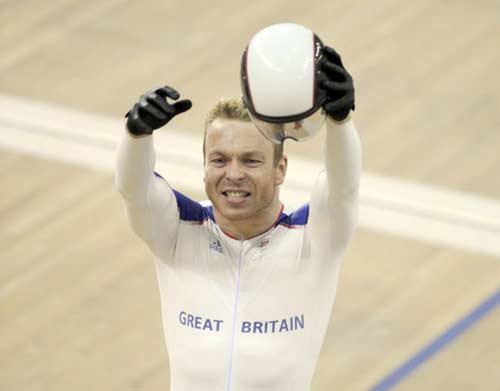'Trainaholic' reaps reward for absolute dedication to his art

Your support helps us to tell the story
From reproductive rights to climate change to Big Tech, The Independent is on the ground when the story is developing. Whether it's investigating the financials of Elon Musk's pro-Trump PAC or producing our latest documentary, 'The A Word', which shines a light on the American women fighting for reproductive rights, we know how important it is to parse out the facts from the messaging.
At such a critical moment in US history, we need reporters on the ground. Your donation allows us to keep sending journalists to speak to both sides of the story.
The Independent is trusted by Americans across the entire political spectrum. And unlike many other quality news outlets, we choose not to lock Americans out of our reporting and analysis with paywalls. We believe quality journalism should be available to everyone, paid for by those who can afford it.
Your support makes all the difference.It sums up Chris Hoy's approach to his sport that the first answer he gave to the press last night in Beijing about how he had taken three Olympics golds was not to do with his racing – it was to do with his training and build-up. "It was a big ask," he recognised, "but so long as you rest right, eat right and train right, you should be ok."
This is typical Hoy (pictured) – the rider who once left an Australian coach in a state of near-shock after engaging in a sprint effort so hard Hoy started retching afterwards.
Hoy repeated the whole procedure, with identical results, several times – and the coach in question was so impressed he used a film of the training session to show his team the meaning of hard work.
"Chris is a trainaholic," team coach Shane Sutton has said of the 32-year-old from Edinburgh. "You just can't stop him."
For all it seems that Hoy is a track cycling natural, it was by no means clear as a child that Hoy would eventually end up in the sport. He first took to BMX, then to rowing at junior level for Scotland and he was also a good rugby player.
However, Hoy finally plumped for track cycling because, he says "I felt I had the best chance of achieving things in it.
"I'm really too small for rowing at 6ft 1in. And I was more interested in cycling than rowing. In cycling you have complete control and none of the hassle or dependency of being involved in a crew."
Track racing in general and sprinting in particular proved to be a perfect option for the heftily built Hoy, who picked up a staggering total of seven golds, four silvers and four bronze medals in World Championships during the 1999 to 2007 period.
Amazingly versatile, Hoy's star turn used to be in the kilometre time trial – nicknamed the kilo – which brought him his first Olympic medal, a gold in Athens in 2004.
But then disaster struck. The UCI, cycling's governing body, were told by the IOC that two track events would no longer count for the Olympics: the kilo got the chop.
Hoy tried desperately hard to convince the UCI to change its mind, but not even a petition with tens of thousands of signatures to bring back the kilo could persuade cycling bigwigs to change their mind.
So Hoy then turned to two other sprint events – the individual and the keirin. A third, the team sprint, was already part of Hoy's repertoire since the late 1990s – with a silver in Sydney as proof of his ability.
It was only in 2006, with the signing of team coach Ian Dyer – to whom Hoy paid tribute last night – that his ability at these two other events truly took off. He made spectacular progress, winning keirin and sprint titles in the 2007 and 2008 World Championships – and has now done the same at Olympic level.
How ironic, then, that last night one of the top names handing out the gongs was none other than Pat McQuaid, UCI president, the man who took the final decision to ban the kilo from the Olympics. "I suppose I'll have to forgive him," Hoy said.
There have been other deterrents, such as track cycling's hitherto low profile – but this never put off the Scotsman.
"Cyclists are not household names," Hoy once said in an interview. "We shouldn't feel hard done by. It's a shame the sport doesn't get more recognition but more medals will raise our profile." After last night's performance, Hoy has certainly played a huge part in doing exactly that.
Join our commenting forum
Join thought-provoking conversations, follow other Independent readers and see their replies
Comments